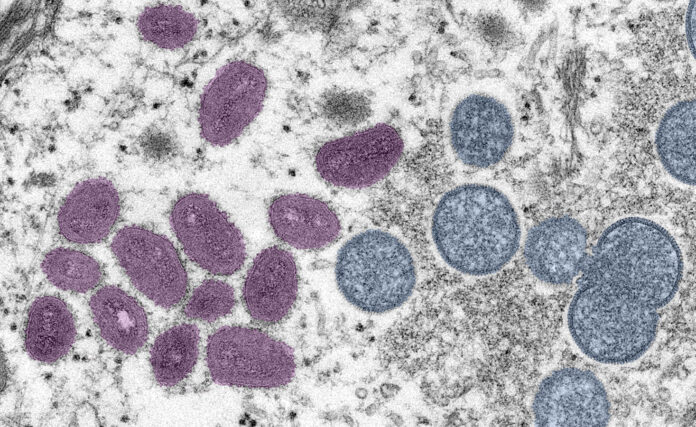CALIFORNIA — Gov. Gavin Newsom declared a state of emergency Monday for monkeypox, enabling the state to access more resources to combat the ongoing outbreak.
The declaration will assist state and local government agencies collaborate to conduct outreach regarding monkeypox vaccines and treatment, seek more vaccine doses and rapidly open vaccination and testing facilities.
Emergency medical personnel are also authorized to administer monkeypox vaccines under the proclamation. The authorization is similar to that granted to pharmacists, according to the governor’s office.
“California is working urgently across all levels of government to slow the spread of monkeypox, leveraging our robust testing, contact tracing and community partnerships strengthened during the pandemic to ensure that those most at risk are our focus for vaccines, treatment and outreach,” Newsom said in a statement.
Newsom’s proclamation comes three days after Dr. Tomas Aragon, the state’s public health officer and director of the California Department of Public Health, said state officials had not yet committed to declaring a public health emergency over the outbreak.
Aragon argued Friday in a media briefing that the state is using information gathered over the last two years of the COVID-19 pandemic about virus spread and surveillance to combat the monkeypox outbreak.
While state officials have sought to reassure the public that the risk of contracting monkeypox remains very low, efforts to procure more doses of the Jynneos vaccine for smallpox and monkeypox have hampered a swift effort to curb the outbreak.
The state had received just over 37,000 doses of the two-dose vaccine as of Friday, with the expectation of receiving another 72,000 doses as soon as this week.
Los Angeles County has also already received or expects to receive more than 50,000 doses that are not part of the state’s total.
But both of those totals are a far cry from the 600,000 to 800,000 vaccine doses Aragon and state Health and Human Services Secretary Dr. Mark Ghaly requested from the federal government last month.
In a letter to the U.S. Centers for Disease Control and Prevention, Ghaly and Aragon called that request a conservative estimate of the state’s true vaccine demand.
U.S. Food and Drug Administration officials said Friday the production of vaccine doses is likely to increase substantially in the coming weeks after the agency expedited approval of manufacturing changes and expanded factory capacity.
Until more doses are available, state officials have focused on administering the first of the vaccine’s two doses to as many eligible people as possible to ensure those who are high risk have at least some protection.
Those who have already been vaccinated will eventually receive their second dose, but it may be longer than the vaccine’s standard four-week waiting period between doses.
“We thank Gov. Newsom for today’s state of emergency declaration, which supports California’s response and vaccination efforts to protect Californians from monkeypox,” said Michelle Gibbons, the executive director of the County Health Executives Association of California. “We continue to urge our federal partners to expedite distribution of crucial vaccines and to provide funding flexibility for local public health departments to protect our communities from this growing public health threat.”
In the greater Bay Area, monkeypox cases have been reported in Alameda, Napa, Contra Costa, San Mateo, San Francisco, Monterey, Santa Cruz, Santa Clara, Solano, Sonoma and Marin counties.
According to the CDPH, 786 probable and confirmed monkeypox cases have been reported statewide. Two-thirds of those cases have been reported in just Los Angeles County and San Francisco.
The vast majority of monkeypox cases have been among gay or bisexual men between the ages of 25 and 54, according to state data. More than 80 percent of the total cases have also been detected in white and Hispanic or Latino people.
Health officials have stressed that the virus is not specific to any sexual orientation and is mostly being spread by skin-to-skin contact rather than more intimate activities like kissing or sexual activity.
Information from the CDPH on who is eligible to get tested for monkeypox, who is eligible to get vaccinated and symptoms of the virus can be found here.
Copyright © 2022 Bay City News, Inc.














